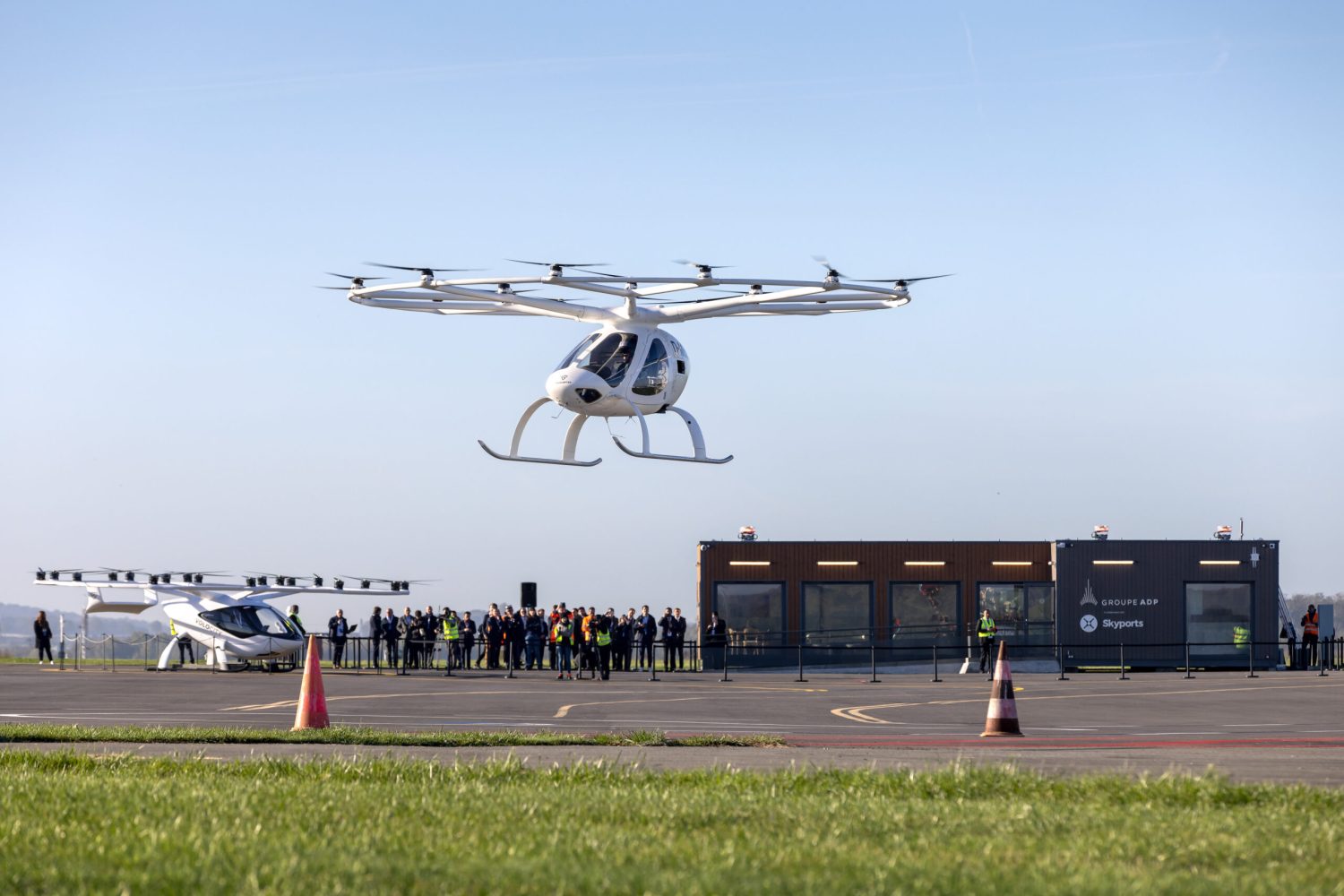
Transport authorities in France have lifted the veil a bit more on demonstration air taxi services slated to debut during the Paris Summer Olympics next year, including the anticipated cost of a ride between Charles de Gaulle Airport and a riverside Seine vertiport of about €110 (just over $119).
Additional information on air taxi activity to and from Paris during the 2025 Olympics was provided this week by Augustin de Romanet, CEO of Aéroports de Paris (AdP), which is a involved in developing advanced air mobility during the event with partners that include Volocopter and Skyports Infrastructure.
Speaking on French news radio station France Info this week, de Romanet said flights between the main airport north of the capital and the city center should cost roughly double the current fixed-price of ground taxis (€62 euros to and from Left Bank locales, and €55 from the Right Bank).
“We’ll be selling several thousands of tickets at reasonable prices,” de Romanet said. “Those should be around 110 euros.”
Read: Skyports-Groupe ADP air taxi vertiport opens for Paris trial phase
Interviewers raised the topic with de Romanet by framing what’s expected to be the world’s first view of air taxis in operation – even in quasi-experimental form – as the biggest focus of public attention outside of Paris 2025 athletic events themselves. The AdP boss did not contest that notion, but did stress that a priority application of the services would be evacuating people needing emergency medical treatment and avoid the frequent traffic jams around the French capital.
Clearly dismayed at the idea of the futuristic aircraft mostly being reserved for the stricken or dying, questioners pressed de Romanet if that meant whatever capacities remained would be restricted to the famous and affluent attending the Games.
“They will be for everyone – (though) why wouldn’t VIPs be able to benefit from them also?” de Romanet replied, stoking suspicions among people aware of how France actually works that Paris Olympics air taxis will wind up mostly shuttling competitors and elite Beautiful People above the gridlock below.
Elsewhere, de Romanet’s comments sought to highlight the potentially revolutionary effects that air taxis and other urban air mobility craft are expected to have – once once Paris has introduced them to the world.
“These are little helicopters that will be tested on experimental routes,” de Romanet of the Olympic services, allowing his enthusiasm to undermine his manner of describing both the unprecedented, drone-inspired conception of next generation aircraft, and the expected consequences of their proliferation in the skies. “These machines will explode around the world from 2028 or 2030 on.”
Read: France tests anti-drone laser weapon for use at 2024 Olympics
The fixed flight paths de Romanet said demonstration air taxis will use during the Paris Summer Olympics correspond to those DroneDJ previously reported as already being tested.
Those include a 21-kilometer parcourse between a vertiport at the Saint-Cyr l’École airfield in Versailles and the Issy-les-Moulineaux heliport in southwest Paris; a 22-kilometer parcourse between Paris-Charles de Gaulle and a barge-hosted vertiport along the Seine’s Quai d’Austerlitz; and a shuttle between Chares de Gaulle and the Le Bourget airport used mostly by government and business aircraft (i.e., VIPs).
FTC: We use income earning auto affiliate links. More.

Comments